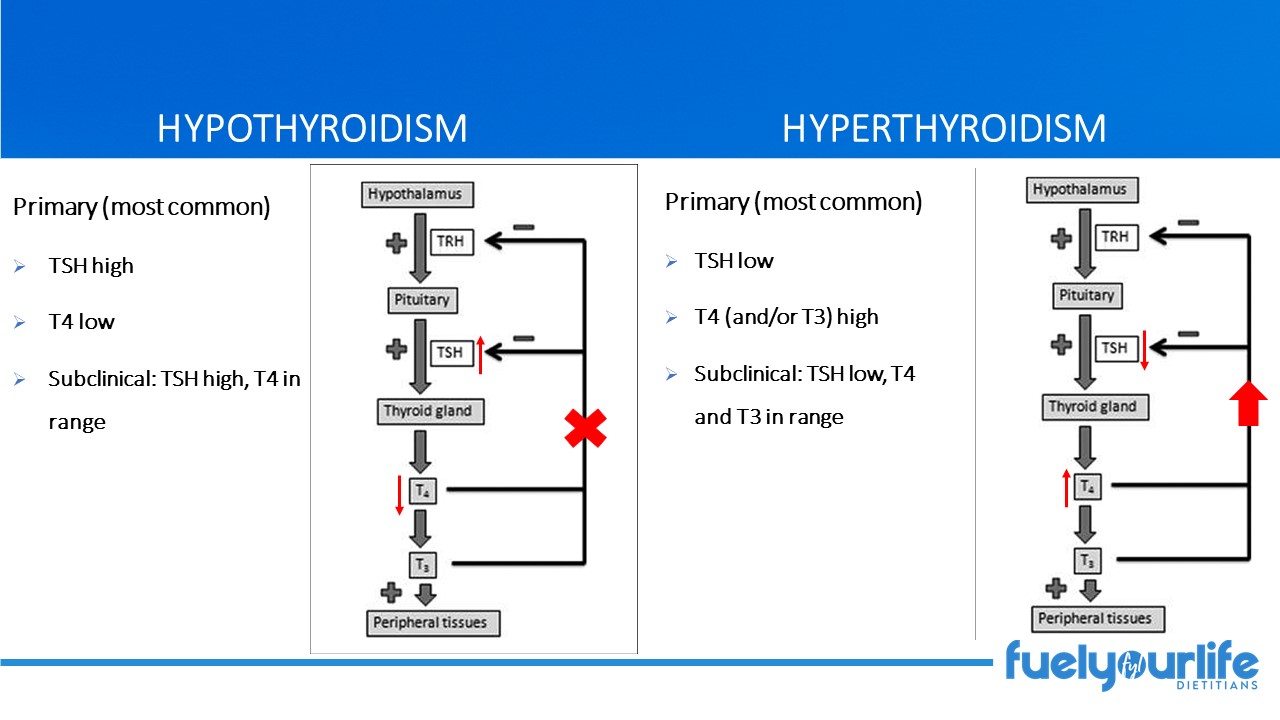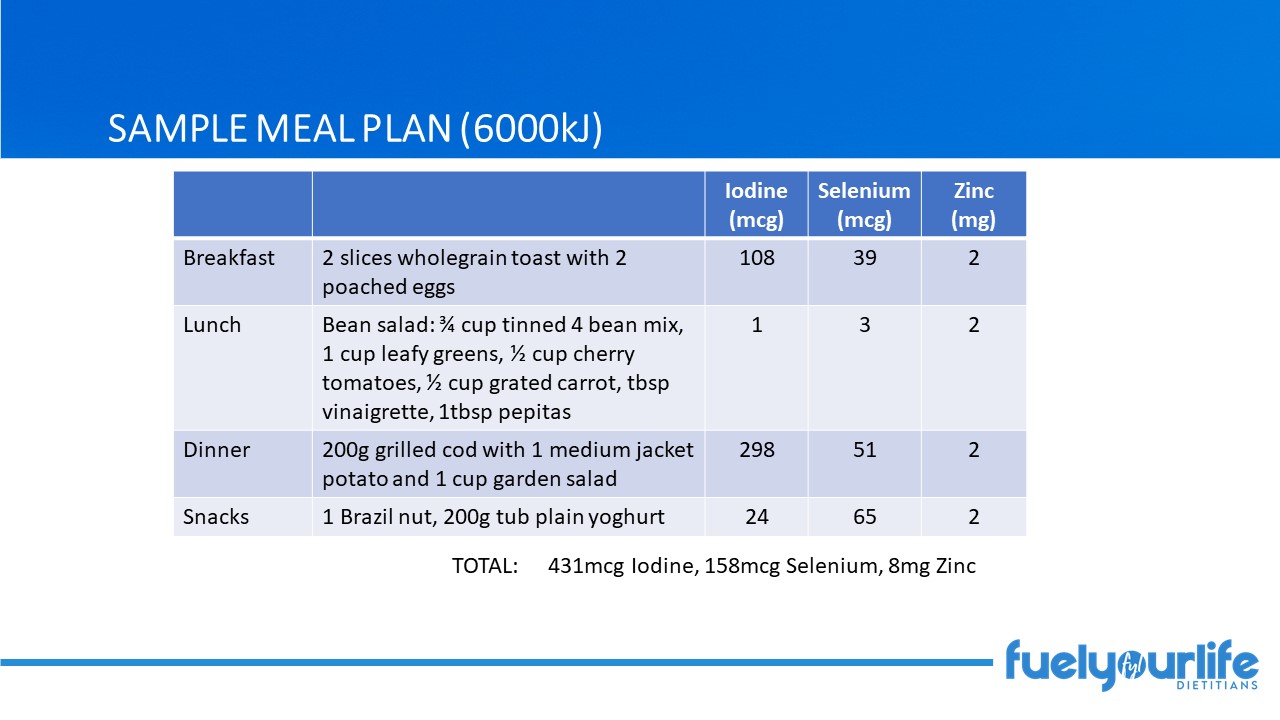Nutritional management of thyroid disease. Presented by Rebekka Frazer, APD, AccSD
 Chloe Risaglu, APD
Chloe Risaglu, APD
The thyroid gland regulates a large number of our metabolic processes. If someone’s thyroid is not functioning optimally, they can become extremely unwell. In this presentation, Rebekka provides an overview of normal thyroid function, the processes involved in hypothyroidism and hyperthyroidism, and symptoms and clinical implications of both.
Rebekka explains that the thyroid utilises two negative feedback loops (at the pituitary and the hypothalamus) to create homeostasis. This provides a background in understanding the biochemical changes we see in blood results in thyroid dysfunction.
Hypothyroidism refers to a deficiency in thyroid hormone, with common symptoms including weight gain, fatigue, and cold intolerance. Thyroid stimulating hormone (TSH) levels are elevated, and thyroxine (T4) levels are reduced. The autoimmune form of hypothyroidism, Hashimoto’s thyroiditis, is the most common cause when intake of iodine is sufficient.
In contrast, hyperthyroidism occurs when there is an increase in thyroid hormone secretion. Symptoms include weight loss, anxiety, tremors, heat intolerance and sweating. Clinical hyperthyroidism is characterised by increased T4 and/or triiodothyronine (T3) levels and reduced TSH. The autoimmune form of hyperthyroidism, Graves’ disease, is the most common form.
While nutrition alone cannot cure thyroid dysfunction, it is a valuable component alongside medical management. There are four key nutrients to assess and target when working with patients with thyroid dysfunction; iodine, selenium, zinc, vitamin D. Rebekka emphasises that micronutrient assessment must be done using computer software analysis. Generalising or making an educated guess about the content of iodine, zinc and selenium in someone’s diet is not accurate enough.
Additionally, Rebekka covers the most common medical management for these conditions, something she encourages us to be aware of. Helpfully, throughout the presentation Rebekka provides insights into some of her own recommendations for managing patients with thyroid dysfunction. She covers the most recent research on the association between thyroid function and gluten and goitrogens, and how this research influences our recommendations.
About the presenter:
Rebekka Frazer is an accredited practicing dietitian and accredited sports dietitian. Rebekka works for Fuel Your Life and Sunshine Coast Dietetics across areas such as chronic disease, food intolerances, weight management. She also works in performance nutrition as the sports dietitian for the Brisbane Roar Football Club.
To register for the presentation, and to access the associated notes and assessment quiz, click here

